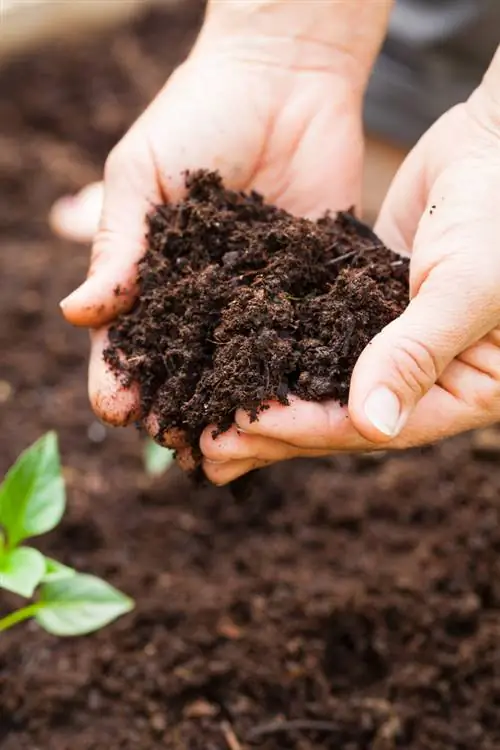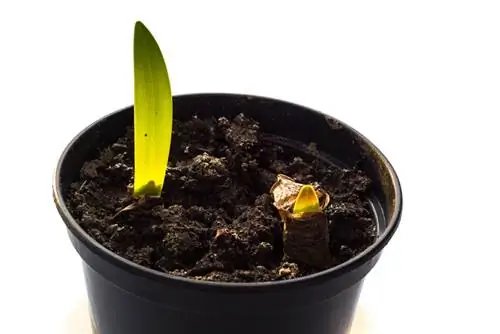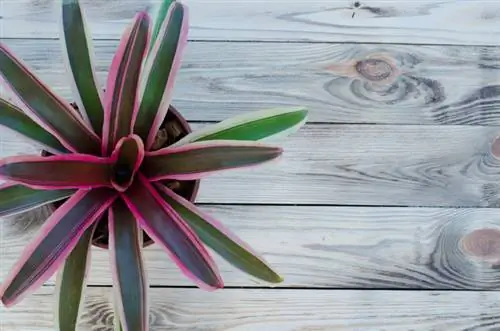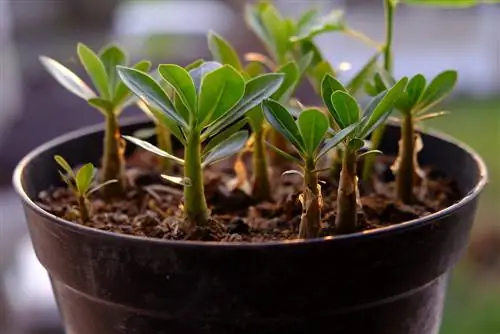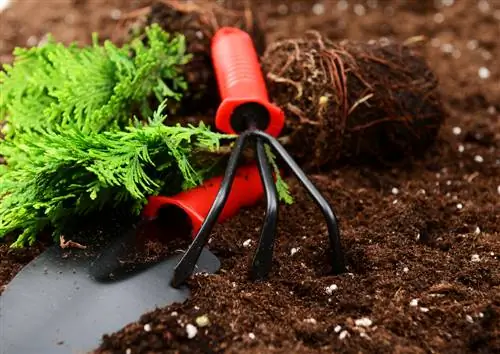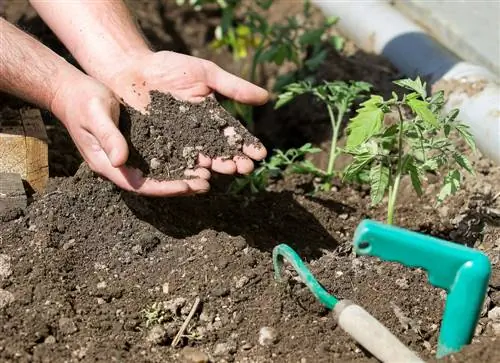- Author admin leonars@hobbygardeners.com.
- Public 2023-12-16 16:46.
- Last modified 2025-01-23 11:21.
The ultimate harvest yield of your specially created vegetable patch depends largely on the weather conditions that prevail throughout the year. However, you can also consciously promote the growth of your vegetable plants by using the appropriate substrate. You can find out which soil is best on this page.
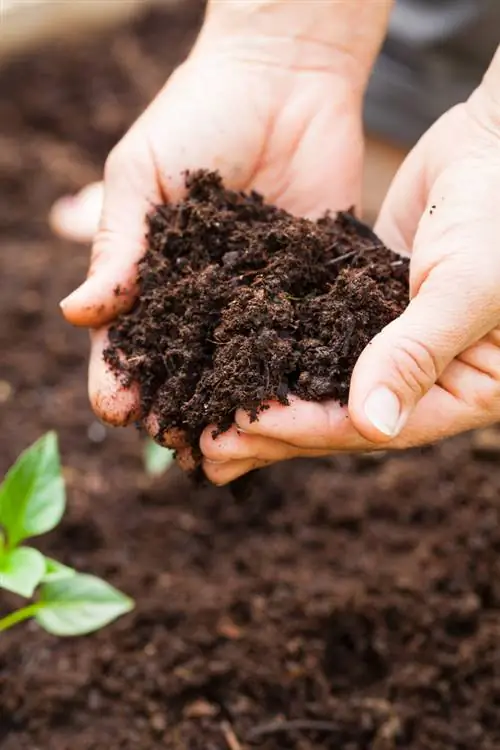
Which soil is suitable for a vegetable patch?
Special soil, compost and coconut soil are suitable for a vegetable bed. Special soil is tailored to the needs of the vegetables. Compost is peat-free and environmentally friendly. Coconut soil retains moisture well and is available as briquettes to save space.
Suitable substrates
Various substrates have proven successful for growing vegetables:
- Special earth
- Compost
- Coconut soil
Special earth
Special soil is tailored precisely to the requirements of the respective vegetable variety. It usually has a coarse-grained consistency to give the plant enough support. Many types of vegetables are satisfied with neutral soil with a pH value of 6-7. This should never fall below 5.
Compost
You can get compost soil at your recycling center. With a bit of luck, the special substrate will even be given away there. This soil is free of peat, which the vegetables particularly like. In addition, by using regional compost you contribute a lot to environmental protection, as it is a recycled product.
Coconut soil
Coconut soil is characterized by its moisture-retaining properties. It is usually offered in the form of a briquette (€8.00 on Amazon), which you can store to save space and only have to dissolve in water before use.
Note: If you grow your vegetable plants yourself from seedlings, you should first use growing soil. This contains fewer nutrients, which would be more damaging to the young plants in the early stages.
Create a vegetable patch
Preparing the soil
Vegetable plants need loose soil for he althy growth and root formation. After you have thoroughly cleared your bed of weeds, you must dig the soil deeply before planting the cuttings in the ground.
Is fertilizer necessary?
If you use special soil or compost, your vegetables will already be provided with all the necessary nutrients. However, you should enrich conventional topsoil. To do this, primarily use organic substances. Suitable examples are:
- Bark mulch
- Compost
- Horn shavings
- or lime
Tip
An annual crop rotation prevents the bed from being deprived of valuable nutrients.

